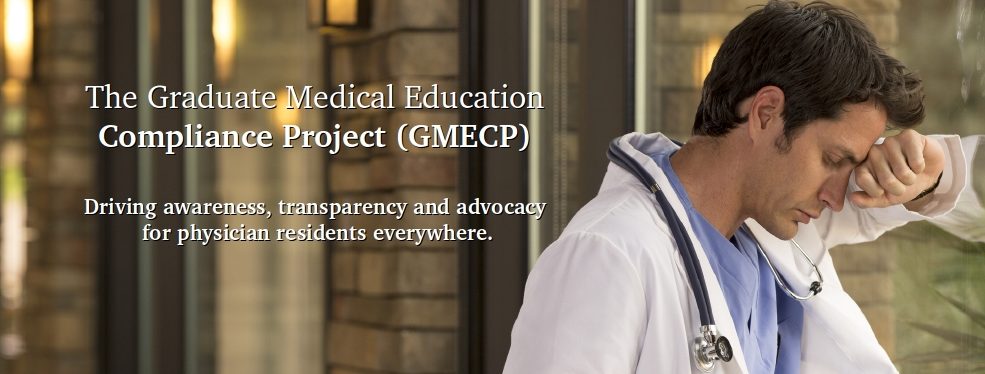As a resident, you are reliant on your residency program and its processes for education, training, reputation, and income. Your entire future and career may be made or broken during these years. The stakes are extremely high. You have agreed to enormous responsibilities and duties of work and learning during this time, and are bound to follow through in order to become board certified in your specialty. Your residency program, its leadership and associated attendings, also have responsibilities to you. While most programs and leadership are genuinely engaged in meeting their obligations and assisting you in becoming a safe and successful physician, there are too many out there that fall short.
What would you do if you recognized significant problems within your institution which could negatively affect your work, learning and future? What would you do if the official channels for reporting problems, non-compliances and violations returned only resistance and hostility? Or even marked you for retaliation, harassment or termination? Perhaps you would start to inquire more deeply, go outside of the unresponsive official channels, look for allies in similar situations, drive transparency, and spread awareness in the hopes of encouraging compliance, change and even protection from harms.
Have you ever:

… witnessed or experienced abusive, demeaning or intimidating behavior from a physician or supervisor and felt powerless to report it, or much less, correct it?
… been less than truthful on ACGME or other surveys or in interviews for fear of retaliation, for fear that the truth would damage the program upon which you depend for your livelihood and future, or because you’ve been encouraged by an authority to misrepresent reality?
… been given an arbitrary, harmful and/or erroneous performance evaluation or disciplinary action for which there is no substantiation, but are powerless to counter?
… noticed a culture of hostility which interferes with the learning and working environment?
… found it extremely difficult to communicate information with an attending physician, or a person in a position of authority, because of an obvious disdain for you and your subordinate position in comparison with their air of elevated status – as if you were sub-human… especially in a way which might affect patient care?
… been blamed, mistreated, berated and/or embarrassed in a group setting for decisions and outcomes which were in no way yours? Perhaps your attending made poor choices or has a marginal skill level, yet you are the one left to hang for it in M&M while the attending sits quietly or is conveniently absent?
… witnessed blatant violations of policy, protocols, guidelines or law (e.g. ACGME, Joint Commission, institutional processes, HR, HIPAA, etc), found that no one seems to care, and that any mention of such an irregularity is summarily dismissed without acknowledgment? Or worse, perhaps you are actively intimidated into silence? Or marked for retaliation?
… wondered about an attending’s or supervisor’s fitness (e.g. personality, skill, thought processes, teaching ability, qualifications, professionalism, etc. ) for the role which they hold?
If any of this seems true to your situation, realize that it is likely happening to others around you, as well,… and perhaps in ways and on scales much greater than recognized. While there are many good residency programs out there (hopefully most), there are some bad ones, too. We’ve experienced some of them and talked to dozens of residents around the United States that have shared their own very painful, and sometimes career-ending, experiences. The purposes of this site are to let you know that you are not alone and to share some insights and resources as we come across them.

If you’re on these pages, chances are that you are experiencing some of the above. So, what do you do now? What if the monitoring and feedback systems in place for you have been co-opted and corrupted such that they cannot address major failures of evaluation, due process, hostile learning environment, and disruptive physician behavior? What if those that administrate these systems are blinded to (or indifferent, or impotent, or potentially even benefited by) the non-compliances and violations which can harm you, your cohorts, and potentially even patients? External resources and pressures may be called for. Transparency may need to be forced so that improvements can be implemented. To believe that such programs and persons will self-regulate or respond to weak oversight bodies is dangerously naive.
This site was established in 2017 and has been maintained by a practicing physician anesthesiologist (M. Todd Rice, MD, MBA) who hopes to leave the site up for reference for many to utilize. Over the years, the project has formed a loose group of physicians, both in practice and in residency, who talk, email, network, share resources, and hope to help those who are dealing with the issues described above. We have personally talked to well over 100 residents in distress over this time frame. While the residents at times bear varying degrees of responsibility for their situations, the underlying issues they report tend to be similar across the country and almost always involve program noncompliances, faculty unprofessionalism and failures of due process. Now, in 2024, the site is not routinely managed, but we’ll leave up the contact us page and still try to offer some insights, if possible.
Our programs. Our future. Our responsibility.

The Graduate Medical Education Compliance Project (GMECP): Driving education, awareness, and positive change towards systemic improvement for our programs’ residents, faculty, and staff.
⇑ to Top of Page
*Disclaimer: We are in no way associated with or supported by any educational, administrative, accreditation, licensing or oversight body mentioned in these pages.
*Legal: Institutional images and names are used non-commercially and under concepts of fair use, public domain, sharing of newsworthy and public-benefiting criticism, and with an unlikelihood of confusion as to trademark usage.
